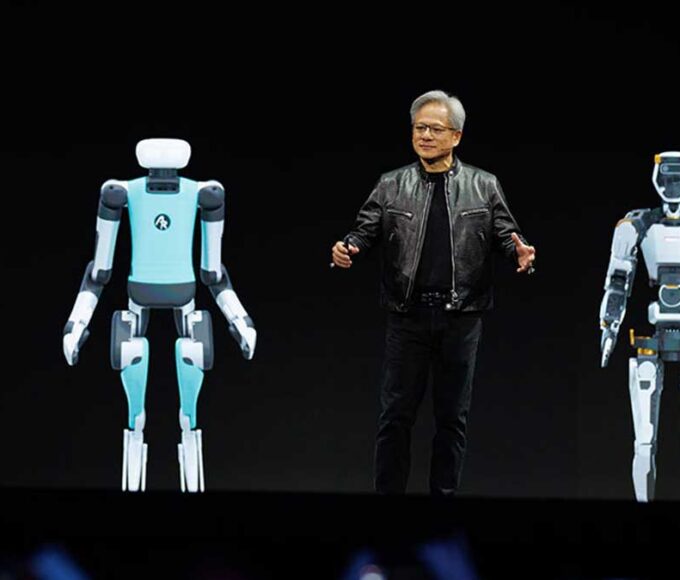- Home
- Billionaires
- Investing Newsletters
- 193CC 1000
- Article Layout 2
- Article Layout 3
- Article Layout 4
- Article Layout 5
- Article Layout 6
- Article Layout 7
- Article Layout 8
- Article Layout 9
- Article Layout 10
- Article Layout 11
- Article Layout 12
- Article Layout 13
- Article Layout 14
- Article Sidebar
- Post Format
- pages
- Archive Layouts
- Post Gallery
- Post Video Background
- Post Review
- Sponsored Post
- Leadership
- Business
- Money
- Small Business
- Innovation
- Shop
Recent Posts
Microsoft’s AI Monetization and Azure Growth Surge

Microsoft (MSFT) is significantly increasing its monetization of AI technologies across its product portfolio while continuously investing in AI innovation. This strategic focus on AI has driven Microsoft’s stock to new heights, with shares recently reaching a record high of $433.60, and currently trading around $415, marking a 10.4% increase year-to-date.
As more customers utilize Microsoft’s platforms and tools for building AI solutions, Azure, the company’s cloud service, is gaining market share. In the fiscal third quarter (March), Microsoft saw a notable rise in large, long-term Azure deals among enterprise customers. The number of Azure deals worth over $100 million grew by more than 80% year over year, and deals exceeding $10 million more than doubled.
During the third fiscal quarter, Microsoft Cloud revenue increased by 23% to $35.1 billion. Azure’s revenue growth of 31% exceeded expectations by 300 basis points, surpassing the consensus estimate of 28.6%. For the fourth fiscal quarter (June), Azure is projected to grow by 30% to 31%. Following the third-quarter results, JP Morgan raised its price target for Microsoft from $440 to $470, citing potential acceleration in Azure growth over the next year.
The substantial increase in Azure deals in March contributed to a 31% growth in total commercial bookings, up from 9% in the previous quarter. Commercial RPO (Remaining Performance Obligation) reached $235 billion, a 21% increase in constant currency, accelerating from 16% growth in the second quarter. Microsoft’s total revenue rose 17% to $61.9 billion, surpassing the consensus estimate of $60.8 billion.
Morgan Stanley remains optimistic about Microsoft’s growth potential in AI, noting that the innovation cycle is just beginning. In the third quarter, Azure AI added about 700 basis points to growth, up from 600 basis points in the prior quarter. Morgan Stanley maintained its price target for Microsoft at $520.
Goldman Sachs increased its price target for Microsoft by $65 to $515, highlighting the company’s unique growth profile and potential for double-digit revenue and earnings growth by fiscal year 2025 (June). The firm sees Microsoft as well-positioned to capture a significant share of the generative AI market through its comprehensive suite of AI services and productivity-focused offerings. Goldman Sachs revised its Azure forecast to reflect sustained 25% growth through fiscal year 2025.
During the third-quarter earnings call, Microsoft CEO Satya Nadella emphasized Azure’s role as a key platform for AI projects, attracting new customers and expanding the installed base. Nadella noted that AI engagements often involve additional services, such as vector databases, developer tools, and Azure Search, highlighting the integrated nature of Microsoft’s AI ecosystem.
Microsoft is a leader in AI advancements, introducing more capable small language models (SLMs) to complement the widely discussed large language models (LLMs). These SLMs offer many of the same capabilities as LLMs but require fewer computing resources, making AI more accessible to a broader audience. The newly announced Phi-3 family of SLMs outperforms similar-sized models in various benchmarks, including language, coding, and math capabilities. SLMs are particularly beneficial for organizations with limited resources, offering simplicity and the ability to be fine-tuned for specific needs.
LLMs are ideal for applications requiring complex task orchestration, advanced reasoning, and data analysis, while SLMs are suitable for simpler tasks and can run locally on devices. SLMs are also advantageous for regulated industries needing high-quality results while keeping data on-premises.
There is significant long-term potential for deploying more advanced SLMs on smartphones and other edge devices. This could lead to AI-powered car computers, traffic systems, smart factory sensors, remote cameras, and environmental compliance monitoring devices. By keeping data within the device, users can reduce latency and enhance privacy.
Overall, Microsoft’s strategic investments and innovations in AI are driving substantial growth and positioning the company as a pioneer in the AI space. With ongoing advancements and an expanding portfolio of AI services, Microsoft is set to capture a significant share of the growing AI market.
Recent Posts
Categories
- 193cc Digital Assets2
- 5G1
- Aerospace & Defense46
- AI37
- Arts3
- Banking & Insurance11
- Big Data3
- Billionaires426
- Boats & Planes1
- Business328
- Careers13
- Cars & Bikes76
- CEO Network1
- CFO Network17
- CHRO Network1
- CIO Network1
- Cloud10
- CMO Network18
- Commercial Real Estate7
- Consultant1
- Consumer Tech180
- CxO1
- Cybersecurity68
- Dining1
- Diversity, Equity & Inclusion4
- Education7
- Energy8
- Enterprise Tech29
- Events11
- Fintech1
- Food & Drink2
- Franchises1
- Freelance1
- Future Of Work2
- Games141
- GIG1
- Healthcare78
- Hollywood & Entertainment186
- Houses1
- Innovation42
- Investing2
- Investing Newsletters4
- Leadership65
- Lifestyle11
- Manufacturing1
- Markets20
- Media193
- Mobile phone1
- Money13
- Personal Finance2
- Policy567
- Real Estate1
- Research6
- Retail1
- Retirement1
- Small Business1
- SportsMoney33
- Style & Beauty1
- Success Income1
- Taxes2
- Travel10
- Uncategorized8
- Vices1
- Watches & Jewelry2
- world's billionaires395
Related Articles
Jensen Huang Sees Physical AI as the Next Big Leap
Nvidia CEO Jensen Huang believes that Physical AI will be the next...
By 193cc Agency CouncilAugust 10, 2024Could AI Be the Next iPhone Moment?
The term “iPhone moment” describes a technological breakthrough that pushes innovation into...
By 193cc Agency CouncilJuly 8, 2024AI Surge Boosts Demand for Memory and Storage Innovations
The rise of artificial intelligence (AI) is significantly boosting the need for...
By 193cc Agency CouncilJuly 5, 2024Generative AI Set to Transform Finance Jobs
Generative AI is poised to revolutionize the financial services industry by automating...
By 193cc Agency CouncilJune 10, 2024















Leave a comment